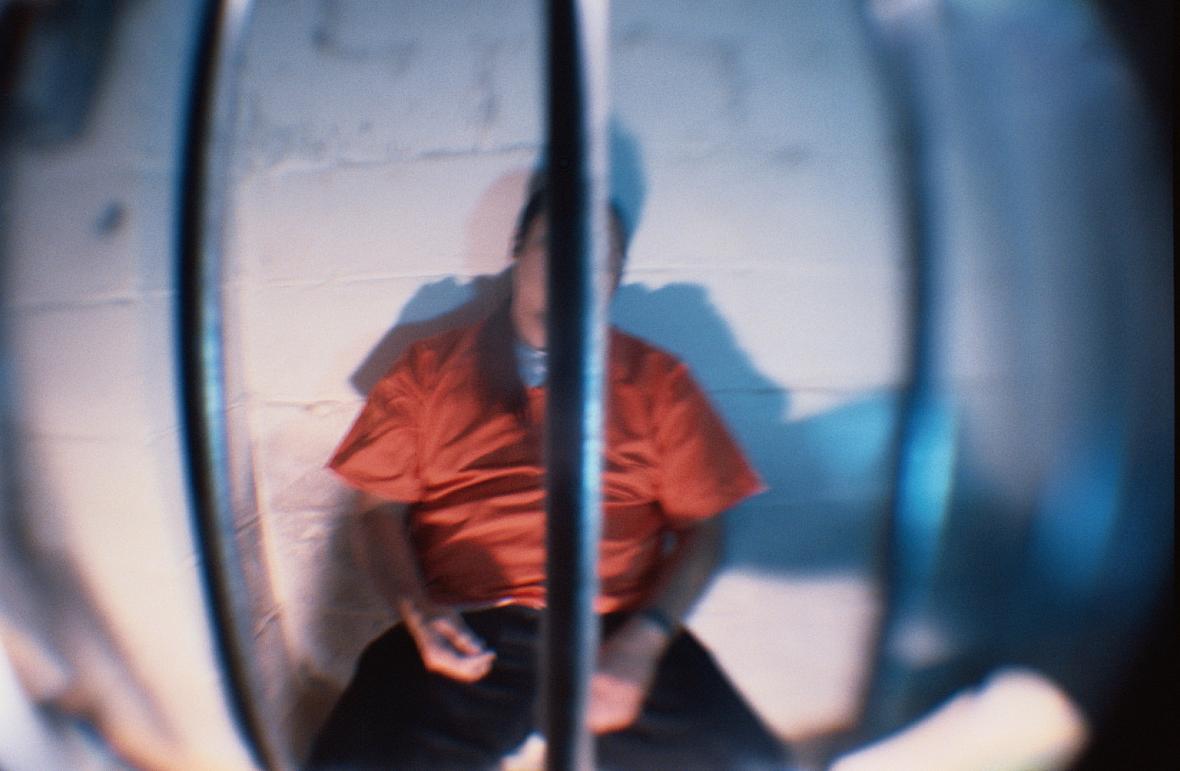Crisis in Correctional Care: Mental Illness
Virginia has about 30,000 inmates in state prisons, served by 14 psychiatrists. Segregation, restraining chairs and solitary confinement are other means by which mental health patients in state prisons receive treatment.
Sandy Hausman produced this series for WVTF Radio as a 2013 National Health Journalism Fellow.
The other parts in the series can be found here:
Diabetes and Death in Virginia Prisons
Crisis in Correctional Care: Inmates Allege Medical Neglect

Virginia has about 30,000 inmates in state prisons, served by 14 psychiatrists. The numbers don’t surprise Marc Mauer, executive director of the Sentencing Project, a non-profit that does research and lobbies for alternatives to incarceration. He says most prisons are unprepared to deal with this psychiatric tsunami (Click here for audio).
“About one of every six people in prison has a history of mental illness. Often issues are not diagnosed very well. Often times it’s dealt with through medication without a lot of individualized attention.”
And Tina Maschi, a professor at Fordham University in New York, says many more prisoners have a personal history of trauma.
“Especially when we’re talking about female prisoners, I see statistics of up to 80% have had a history of physical or sexual victimization.”
See Also: Inmates Allege Medical Neglect
Couple that with the lack of counseling and the stressful conditions of prison life, and it’s no surprise that some inmates cannot cope. Thirty-one-year-old James Harvey was recently released from the Coffeewood Correctional Center near Culpeper.
“I had two friends - one when he first came in, he told them that he was depressed and he’s had thoughts of suicide before, and they put him in the holding area, and then they come back a couple of hours later, and he’s hung himself. And then one guy that asked to see the psychiatrist - he thought he needed medication, and they put it off for 30-45 days, and they ended up finding him in his cell.”
Other troubled inmates end up in what some describe as solitary confinement. The state of Virginia refers the term segregation, since inmates are allowed to speak with visitors, but State Delegate Patrick Hope of Arlington, who recently toured one of two Supermax prisons called Red Onion, says that’s a small distinction.
“They can speak to visitors in segregation, but the fact is very few people can take the time to visit Red Onion. It’s the southwest corner of the state. It’s a six hour drive to Richmond, a seven hour drive from Arlington, and nine hours from Virginia Beach.”
The state also points out that prisoners in segregation can talk to each other from a distance and spend a limited amount of time in a small, outdoor cage for so-called recreation. But ACLU attorney Hope Amezquita is not impressed.
“You might get rec one hour a day, five days a week, if the correctional guards decide you can get it that day. You receive your food through a tray slot. You have no physical contact with anybody. We often hear from prisoners who write to us who say the only physical contact with another person is when they’re being shackled to be brought to the shower. In Virginia they’re permitted to have three showers a week, five hours of rec time a week, and that’s it. “
In county or city jails, the situation may be even worse. Harvey Yoder is a Mennonite minister and family counselor who often visits the Harrisonburg-Rockingham Regional Jail. The administration spends less than $13,000 a year for mental health services, and when inmates are deemed suicidally depressed they may be placed in an isolated, padded cell.
“A person is stripped of their clothing and given a paper gown to wear, and the cell itself has nothing in it -- no mattress or anything, and your food is just given through a slot in the door, without any utensils to eat it with, and there’s a grate in the floor that has to be used for a commode. It’s just abominable.”
Those who pose a physical threat to themselves or others can also be put in a restraining chair - their arms, legs and torsos strapped down for hours.
“You can just imagine the torment that this would be for any individual, but especially for someone who’s already emotionally distressed.”
There is no psychotherapy, no real counseling, he says, and some inmates have trouble getting the medications they need. But the restraining chair does keep suicidal inmates from ruining their jailer’s reputation.
“The jail is operated by a sheriff who is elected, of course, as all sheriffs are in Virginia, and one bad case of something terrible happening - someone killing themselves in jail, just really tarnishes the image of the jail, so they take all kinds of precautions.”
Yoder and other mental health professionals have offered to counsel inmates at no charge if the local sheriff agrees to stop using these methods.
Delegate Hope is asking the state for better mental health care in its prisons and release of more prisoners from solitary. “About 90% of all the prisoners in Virginia will one day get free, and when you put someone in segregation, someone in isolation for long periods of time, they become seriously mentally ill, and I worry about their next victim, I worry about their next crime. That’s why the public should be outraged about the way we’ve been treating people in segregation.”
He says a number of states, including Mississippi, have been doing away with solitary, and Virginia has made some big improvements at Red Onion -- reducing the population in segregation by more than 50%, adding classes in anger management, social skills, problem solving and staying off drugs.
Prisoners get to join group meals and have longer recreation periods as their behavior improves, but the ACLU’s Amezquita worries about inmates whose mental illness makes it impossible to participate.
This story was originially published on WVTF.org

